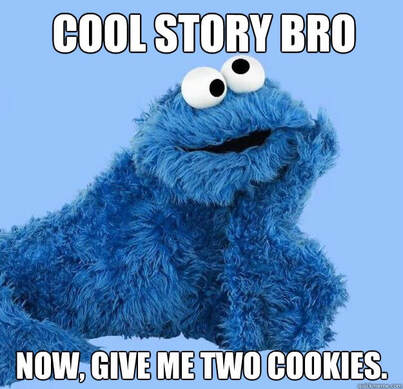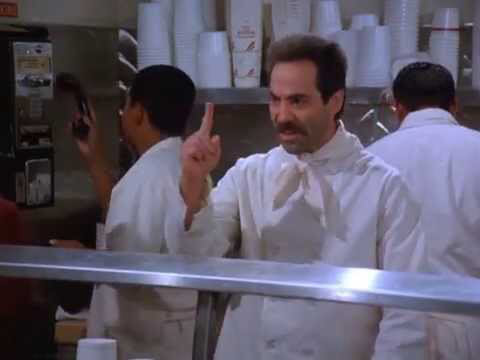|
Watching a webinar panel discussion today, it occurred to me I am not a mother. That seems like a flat statement. The more complex revelations were: I have never had to fight the stigma of being a working mom or fought an internal struggle of whether or not to go back to work or even decide what length maternity leave I should take.
Another revelation, rather a shocking horror, is how far we have NOT come. Forbes magazine reported in 2021 the gender pay gap is 82 cents on the dollar. I believe that is only an eight-cent increase since I was a girl in the 1970s. Did you just get whiplash? Yeh. Me, too. This is on par with the lack of growth on minimum wage. My first job in 1987 paid $4.25/hour. Now in 2022—35 years later—the minimum wage is $7.25. It is how interesting minimum wage ensures pay equity. Or does it? Women have been underpaid for what seems like all eternity. Again, perhaps another flat statement. But this one has zigzags. So why are we running a tortoise-style race on this issue? The panelists suggested the cultural mores of our childhoods have played a large part in the slow propulsion. Subconsciously or not, many of us were brought up in a sexist culture. I for one was not allowed to mow the lawn. I really wanted to because the perfectionist in me was eager to create straight ribbons of green grass. My father didn’t even like the idea of me having a job at the age of 16. But that didn’t stop me. Somebody had to pay for the cassette tapes I wanted. And how amazing do you think it felt when I mowed the lawn at my rental house as an adult? Strange things to feel liberated about, but it was real for me. On both occasions I owned my power. The first time I negotiated my salary as a candidate was deeply satisfying. I had researched salaries for this position in the geographical area as well as cost of living. I counter-offered fairly and both sides compromised. As women, it can be a struggle to aim high, especially if we don’t know our worth or don’t believe in the value we bring to the table. Nobody else is going to toot our horn for us. We have GOT to start defining our own worth. I relocated on my dime but they agreed to a higher wage. Working mothers ought to strip their minds of any guilt and shame for taking time to bond with their baby. Conversely, as women we tend to overextend ourselves to earn validation. “Oh, you’re Super Woman for juggling a career, being a soccer mom, volunteering for Habitat for Humanity, and making dinner.” No. Listen up, men. This is the 21st century. Time to put your money where your mouth is and pay women what you pay the men. Smoking is no longer chic. Nor is underpaying women.
0 Comments
My friend and I were recently discussing her job search. She started to pick my brain as an HR professional. We are both “over the hill” now and she asked if age discrimination occurs. I assured her it does not. But then I began wondering. Does it? I’ve been a job seeker. Do employers reject candidates based on the age they think a candidate is?
I remember as a kid thinking how awful it must be to turn 50. All the black balloons and black decorations and gag jokes. Luckily for me, I don’t look my age. Conversely, that doesn’t always work in my favor. Employers may think I’m too young to fill the shoes of a director-level position. Or, if they suss out my age, perhaps they believe me unable to develop fresh ideas or burn the midnight oil. [For the record employers, burning the midnight oil is no longer a thing. Work-life balance is. Employee engagement is. So is candidate experience. Get with the program—it’s 2022.] So I ask again, does ageism occur? Should you include on your resume or job application the dates of education or list work experience so far in the past it ages you? What about jobs whose skills included software that is outdated, perhaps even no longer used? It depends. If you have continued learning comparable software in the same field, yes. If you’d rather leave off the dates, do it. If you think it’s unnecessary to list outdated software, don’t include it. If prior employment doesn’t relate to your current job search, delete it. Some employers may be impressed with your commitment to learn software programs over the years. Some may revere you for having been alive when such programs existed. [They may just be my hope. Any Aldus Pagemaker fans here?] The job market today is bananas. Things have truly been turned on their head and I’m not sure if it’s the job market, the industry, a little of both, or none of the above. The thought my friend fears her age is keeping her from getting interviews angers and saddens me. This is a jobseeker’s paradise right now. As a candidate, your best bet is to go with what boosts your confidence. Put your best foot forward and own your experience. That’s what makes you the unique jobseeker you are. What you bring to the table is incomparable. I choose to believe employers are ethical, honorable, and are considering the qualifications, temperament, personality, and skills set of a candidate. Age is just a number. Some 20 somethings are far more mature than individuals in their 50s. If an employer is obsessed with a number, they’re not the company for you. Have you ever applied to a job—even interviewed—only to never hear from the employer again? Have you been offered a job but quietly slinked away without responding, like Homer Simpson disappearing into the bush? Do you ignore calls from potential employers?
Ghosting is a phenomenon that has expanded its reference from romantic relationships and friendships. It is now a part of a job seeker’s misery and a recruiter’s nightmare. Is it a generational issue? Has Covid-19 affected our manners? Do people in general just not care? Or are they too chicken to man up and decline the job or reject a candidate? For the past five months I have been working as a contract recruiter. Most of the positions are frontline, super essential, and require no experience. But guess what? They have been some of the hardest to fill. I have been wracking my brain for out-of-the-box methods to recruit. I just attended a speed interviewing event hosted by the State. I’ve driven around local communities, popping into local businesses to ask if I can post or leave a flyer about our jobs or hiring event. I have even emailed churches! Why? Folks aren’t answering their phones or returning phone calls. THey're not showing up to our hiring events. Or they don’t want to work the overnight shift. And sometimes they prefer to have a life and not work 12-hour shifts. I get it. But for those who are too lazy to pick up the phone or return a call, I’d love to know why. I mean, it took time to fill out our short application. Obviously searching out jobs, 85% of our candidates indicate they found us on Indeed. So is it to meet the weekly quota to collect unemployment? Let me be honest here: this is what us recruiters believe. “Nobody wants to work. Everybody wants to stay home and watch streaming TV. This person isn’t remotely qualified for the job.” On the flip side, jobseekers are receiving zero feedback from employers—not even a canned “Thanks for applying” email. If a candidate took the time to submit their information to our company for an open position, you’d better believe I’m going to take the time to review their information. Does not matter if they meet the skills set or not. Besides, you never know what gold you may find. It may be work experience paralleling that hard-to-fill maintenance position. Here’s the fun part for all recruiters and hiring managers: Candidate A looks superb on paper but interviews horribly while Candidate B looks terrible on paper but interviews like a rockstar. This is why I don’t always reject Candidate B or assume Candidate A fits the bill. I will reach out and screen candidates who just might be the best hire in the history of recruiting. So when I phone screen a candidate, I am upfront about important aspects of work, like overtime and the varying temperatures in the work environment. Why wouldn’t I be? Honesty is always the best policy. And it’s not like they’re not going to find out once they start working. I believe wholeheartedly in the candidate experience. It sets the tone for enjoyment in their employment. In this job market, attraction and retention are key. I started believing a couple years ago that the candidate experience begins before they even apply. They have to be sold on a position AND the company to spend time creating a profile in the applicant tracking system and uploading their resume. With the dizzying amount of bonuses being offered today, candidates are comparing compensation and boning up on benefits. They are savvy, asking tough questions, as they should be. They aren’t just taking the first offer they receive. So in my recruitment experience, what clinches the deal seems to be the initial phone conversation (followed by consistent communication during the hiring process). This conversation is when I let my light shine as a recruiter. I bust out my authentic self and engage, engage, engage. I don’t just power through the same standard questions with monotonic flatness. I infuse my personality and my curiosity kicks in, because I want to “see” if their personality joins in and whether they ask questions. If they are engaged also, I know am building a connection with them. And that bodes well. But, lately it’s been nightmarish. Sometimes a candidate is gung-ho, they accept the job, and fill out the background check profile with lightning speed. Then we wait, and wait, and wait…only to find out they’ve robbed a bank within the past seven years. Or maybe they’ve tested positive for crack cocaine. And I think to yourself, “Well, I didn’t see THAT coming. It was going so well.” Because one of my five strengths is achiever AND I have been my authentic self, I take it personally when a candidate ghosts me. Or, if after a week they still have not accepted the offer, I call and they don’t answer or return my call. I am crushed. I am crushed because I have expended energy and invested myself in them becoming our newest employee. The ones that hurt the most are the ones who enthusiastically told me they were excited to come onboard, only to be ghosted by them. When the shoe is on the other foot and you have interviewed multiple candidates, reach out to those not selected and let them know why. Be honest. It may be what catapults them into a successful interview with the next company. And guess what? They may be more likely to recommend your company to a friend or family member. Let’s take a page from Casper’s book and be kind to one another. Jobseekers, answer those phone calls and decline those job offers. Recruiters, give some respect to jobseekers and tell them if they’re not a good fit. Even if it’s through a panned, “Thanks, but no, thanks” email. Leaving a person hanging just isn’t right. Don’t ghost. Instead, own up and move on to the next candidate or company. I have lived in Central Iowa for nearly 2 years. As seasons shifted and the earth thawed this Spring, farmers slowly began to till the land. Espresso-hued soil showed itself to me. Dark, dark soil was being readied to welcome seeds and assist in their metamorphosis. I have never seen dirt this black before. In Texas, it is milk chocolate at best. Now I know why this state’s land is blanketed in crops.
However, limitations do come into play in the form of lack of care, lack of tools, and even unpredictable weather. This year, I have had the privilege of watching crops from the beginning. Corn is in the midst of growth as I write this. Last year was a completely different story. The derecho flattened fields upon fields of corn. I saw it with my own eyes. It was a setback, a devastating and severe setback, to be sure. But I don’t believe it destroyed the heart and soul of the farmers. Imagine my surprise this year seeing abundantly rich earth and the possibilities to come. From the time I arrived in Iowa to the middle of July last year, I worked from home. This meant I didn’t see the progression of crops. This year is different. This year has been a marvel. The longer I live here the more I realize this landscape very much resembles the landscape I know of in northern Denmark. It is no surprise then that my great-grandfather, and many other Danes who came to America, chose to settle here. It was comforting to them because it looked like home. This brings to mind the Danish concept of hygge . The best way I know to describe hygge is that warm fuzzy feeling you get when you are around family and friends, or you are lounging by a nice cozy fire, curled up in your chair. I mention this because it ties to the concept of employee engagement, which is ever-present in my world. Farmers possess a sense of responsibility to the land and to the crops they grow. The more backbreaking labor a farmer puts into his crops, the more he will likely reap. Undoubtedly my great-grandfather surveyed his fields and derived much satisfaction, pride, and quite possibly hygge. I liken this to the awareness, care, and action leaders put into employee engagement. The more attuned leaders are, the more significant the outcomes for their organization. The flip side of this is when farmers use too much pesticide, it kills the crops. So when leaders allow toxic environments to persist within their organization, it kills engagement. Furthermore, it most likely kills the engagement of some of the best employees. I am reminded of one of the questions on the Gallup poll survey—I have the tools I need to perform my job. This could be as simple as a stapler, pens, and paper. Or it could be more complex such as software or training. I often wonder how many leaders are aware their employees do not have the tools to perform their job. Worse yet would be if leaders are aware but do not have the financial resources to provide such tools. And still worse would be if the leaders just don’t care yet still expect the same yields from employees. Toxic pesticides could also come in the form of throwing employees under the bus or taking credit for employees’ work. Poor or low engagement can be displayed in the form of lack of performance management or micro management. These issues can work both ways. I believe one of the most detrimental acts is negligent retention. This means not managing poor performance or toxic behavior certain employees exhibit which affects coworker productivity and ultimately the organization as a whole. Farmers learn over time how to effectively cultivate the soil. They recognize weeds and develop ways to prohibit their return. Farmers’ patience evolves and they understand the time and care they take to prepare the earth for planting will result in profitability. Leaders would do well to take lessons from farmers who are agricultural experts. When leaders commit to comprehending engagement, enacting positive protocol, and taking the reins of responsibility and accountability, the greater efforts employees will employ and hygge will remain ripe. Leaders should pause and think of their organization as a landscape, picturing fertile soil and imagining what the yield could be. Up here in Iowa, the sky is the limit. *This was written and meant to be posted yesterday, 28th April 2020. Ooops! :)
One year ago today I jumped out of an airplane for the first time. In Norway. Why Norway? I was tired of waiting. Twenty years ago I decided to add skydiving to my bucket list. In 2011, before my trip to Iceland, I searched for jump sites. There were none. A friend in Louisiana had jumped for her first time a few years ago and then a second time a year later. It got my brain buzzing again. As I planned my trip to Norway last year, on a whim I searched for jump sites. One stood out: Skydive Voss. This is it. This is the time. Norway is the place. I HAVE TO JUMP. Shakespeare counseled us to stay true to ourselves. My index finger hovered over the keyboard. Was I really going to do this? I HAVE TO JUMP. Am I sure I’m not too heavy? I kind of misrepresented my weight. I HAVE TO JUMP. What if the parachute doesn’t open? I HAVE TO JUMP. Submit Payment. Click. I guess I’m going skydiving in Norway. I’m going skydiving in Norway. I’M GOING SKYDIVING IN NORWAY! Earlier today, I looked out my window intently. Where was the cardinal that lives in the big evergreen? Eyes scanned various trees outside my second-story window. There he is! The cardinal reminds me of my friend Laurie whose life was cut short by cancer. Tears begin to stream down my right cheek, then left. A year or so before she died—before she even knew she had cancer—she gave me a late birthday gift. Laurie always gave the best gifts. One of the gifts was a wall hanging. It measures 8 x 10 and sticks out from the wall about one inch. On the canvas it has an antique map with part of the world in pale green tones—like the green of an old globe. In beige bold capital letters, there is a message that reads, “WHEREVER YOU GO, GO WITH ALL YOUR HEART.” I have been reflecting in recent weeks on my life--the highs and lows, and how I got where I am. Is where I am where I am supposed to be? A few months ago I acknowledged the gypsy spirit within me and how roaming is necessary for soul survival. Wherever you go, go with all your heart. I currently reside in Des Moines, Iowa. Why Iowa? I was born here and my roots are here, my extended family. I never really lived in Iowa until now because before I turned one year old, my father joined the Air Force and our military life began. I look up at this photo on the wall above my desk. This was the moment. I could have turned back. I HAVE TO JUMP. In the months leading up to this moment, my work life was shit. Mere weeks before this moment I had slipped into an emotional crevasse, the deepest kind out of which you’re not sure how to escape. I HAVE TO JUMP. For me, that jump represented my ability to conquer fears, leap over hurdles, and keep going. I was saying to myself, “You are a ROCKSTAR and you can do anything.” Watching the cardinal sitting on the branch, a thought surfaces. “Laurie would be so proud of me. I faced my fear and jumped out of that plane. I am fearless. I always have been.” Then I laugh because she would have also told me I was crazy for jumping out of that plane. Wherever you go, go with all your heart. I jumped out of that plane to recapture myself, embolden myself, and to remind myself I am not afraid. In that moment, I was all in. Editing and writing is where I am all in—it is my home. I shouldn’t chase things that aren’t meant for me. I shouldn’t take jobs that leave me feeling meh. Wherever you go, go with all your heart. My soul needs to be all in, whatever it is I am doing. I left that job last year, just a week after I returned from vacation. I’d had an epiphany. Some may call it a reality check. My health, both physical and mental, was being sacrificed. I was on the road to death. Wherever you go, go with all your heart. I had no backup plan, no new job lined up as a safety net. I hadn’t planned it. But I had to have faith the parachute would open. I HAVE TO JUMP. As harvest seasons come to a close, this topic popped into my head. I come from a long line of farmers on both sides of my family. I am proud to say this. Recently I was driving a back highway in the countryside of Western Iowa. (I relocated to Iowa from Texas at the beginning of September.) When I describe Iowa to my friends in Texas, I tell them, “Iowa has lots of corn.” Now that I live here, I have discovered that statement is an understatement. And I’m quite proud of this as well.
Something else Iowa has is hills. Many people have a misperception of Iowa as being flat—that’s Nebraska. So imagine planting rows and rows and rows of corn on hillside after hillside after hillside. Now imagine driving a tractor or a combine on these same rolling hills. Then it hits me—this landscape is reminiscent of Northern Denmark! When I visited Danish family members in Denmark this past spring, I saw canola fields for the first time. Bright, bright yellow flowering plants that reminded me of the mustard plants in West Germany when I was a kid. This spring I visited Kongenshus Mindepark in Denmark where the heath remains natural and untouched. Memorial stones are placed for farmers who “broke the heath” and made the land fertile and farmable. Breaking the heath is done through backbreaking, hard manual labor. It also takes determination. My great-great grandfather, Anders Poulsen Andersen, is one such farmer. So as I was driving the hills between Avoca and Oakland, Iowa, several words came to mind: Perseverance. Hope. Disappointment. Gratitude. Fortitude. I realized the magnitude of the commitment it took for my ancestor to break the heath in northern Denmark at the turn of the century. This heath is un-level ground full of stones big and small. This land is often unfertile at best. But he did not rest until his land was fertile and flat enough to plant crops. To appreciate this feat, you have to visualize what this land was before it became a farm. If you have ever seen Wuthering Heights, you understand. The heath in Denmark is much like the moors of Scotland & England. The words above are indicative of life as a farmer. Perseverance. According to Merriam-Webster, perseverance is defined as, “continued effort to do or achieve something despite difficulties, failure, or opposition” or “to persist in a state, enterprise, or undertaking in spite of counterinfluences, opposition, or discouragement.” A synonym is steadfastness. Hope. Merriam-Webster defines it as “to cherish a desire with anticipation and expectation of fulfillment; trust” with an antonym as “doubt”. Disappointment. To disappoint is defined by Merriam-Webster as, “to fail to meet the expectation or hope of; to fail or let down.” Gratitude. “The state of being grateful or thankfulness” is how Merriam-Webster defines gratitude. Grateful is defined at appreciative of benefits received. Fortitude. I think how Merriam-Webster defines fortitude is my favorite: “strength of mind that enables a person to encounter danger or bear pain or adversity with courage.” There’s a certain quiet power in this. And the synonyms say it all, “backbone, constancy, grit, guts.” These words describe a farmer, any farmer. But I began to ponder how these words relate to employees. I am reminded not all employees are alike. Some employees put in great effort without recognition. Some employees work multiple jobs to make ends meet. Still other employees sacrifice to pursue a higher education while working full time. Consider all these individuals sow and what they may reap in return. Being in touch with employees is our job as HR professionals. But it is the responsibility of leadership to support efforts—both on and off the job—employees make to fulfill their dreams. Setting up scholarships instead of tuition reimbursement or evaluating wages for fair market value so an employee doesn’t have to work multiple jobs are ways to enact support. I am a huge believer in bringing “human” back to Human Resources. We may have zero idea what an individual employee is experiencing in their personal life. However, with initiative, it is not difficult to gather input from employees to truly understand what would help ease any struggle they may be enduring. After all, for financial reasons there are some Traditionalists working into early or mid 70s. In 1927 my great-grandfather Ernst Andersen left Denmark for Iowa at the age of 19. One of 12 children, he chose to take risks and sail to America. He chose to bring his farming knowledge to the Midwest and settle in a community called Avoca, which welcomed Danish immigrants. He continued the heritage of his father by choosing to farm the land. The farm is still in our family. You can see it from the interstate. I am proud as punch every single time I visit. It is not lost on me the perseverance, hope, disappointment, gratitude, and fortitude that went into life as a farmer. Have you ever wondered if Sesame Street was just for kids? Recently, I have had conversations with multiple individuals wherein company culture was discussed. Company culture is a critical and pivotal element for any organization. It affects retention, customer service, effectiveness, productivity, and it can even affect reputation. I would love to hear from each of you about what you believe company culture is. And now I want to share with you what I believe company culture is.
Culture is comprised of a multitude of things: trust, loyalty, empowerment, diversity, values, transparency, communication, and oh so many more. It can also be comprised of things such as: dishonesty, disengagement, disloyalty, and dissension. What I believe company culture may not be are the mission, vision, and values plastered all over the website and walls of the organization. Why, might you ask? Unless the mission, vision, and values are enacted on a consistent basis within all levels of the organization, they are virtually meaningless. I read a post on LinkedIn using this quote, “The culture of any organization is shaped by the worst behavior the leader is willing to tolerate.” Let that sink in for a minute. Now take a moment to consider whether there is such a culture within your organization. How is this culture displayed, what behaviors are tolerated? If there is this type of culture, how does it seem to penetrate the organization? The affect culture has across an organization is contagious. It ripples throughout the company and can spill over into the community. Think about your most recent experience at a hospital or a hotel. Was it a good experience? How could you tell? This experience may depend upon wait time, sincerity of caregivers, thoroughness of exam, timeliness of ancillary services, if discharge information was relayed, and the list continues. Or it could be how you were greeted at the front desk, timely check-in process, satisfactory room, friendly hotel staff, ample parking, breakfast hours, cleanliness of the pool or workout room, and again the list continues. My guess is you either had a good experience or a bad one. My next guess is if your experience was excessively good or bad, you told friends, you told family members. You told as many people as you could. How does culture impact your experience? I firmly believe if a company values its employees, it will show in how the employees engage with the customer. I’ve talked about employee engagement before. Culture is how engagement acts. In other words, if employees are engaged, their actions will express it. But culture is more than that. Culture permeates the environment and can smell like roses or it can stink like rotten eggs. If a CEO is heavy-handed and barks marching orders to managers, this will likely have a negative trickle-down effect. The manager may then return to his or her department in a grumpy mood and shut their office door without communicating to staff. However, if the top leader seeks manager input and listens to feedback, a culture of inclusiveness and collaboration exists. That same manager may return to the department, gather staff, and have a staff meeting to discuss ways of improving service and effectiveness. Now ask yourself how much culture costs a company. Is it millions of dollars? Thousands? Hundreds? Here is a secret: culture doesn’t have to cost a dime. It truly can be implementing the Golden Rule. Treat others how you want to be treated. As a CEO or manager, if your employees feel valued, they will value customers. This leads to great experiences and positive word-of-mouth advertising, costing zero dollars. Incidentally, the employees will value you as the CEO or manager. It’s a triple win! Conversely, culture can cost a company tons of money in lost sales, increased turnover, bad publicity, even legal action. If a leader is not attuned to the workforce, you can bet it results in a negative culture. When such a culture exists, employees don’t care about the customer experience. Employees get sloppy, lazy, and tend to have poor attendance. Culture can also be status quo and the “it’s not my job” syndrome and nobody knowing about recent policy changes. Or, culture can be welcoming innovation and “teamwork makes the dream work” and company-wide communication when a policy changes. It’s all these things. Herb Kelleher of Southwest Airlines got it right when he said, “Culture is what people do when no one is looking.” So let’s talk about that for a minute. What would you say if you found out your office was bugged or your work email was being monitored with eagle eyes? What kind of culture what you say that is? To me, this is another version of “no one is looking” wherein the culture is one of high distrust, extreme micromanaging, and even invasion of privacy. While your office is company property, it should also be a place of confidential conversations. And while your work email is also company property, it can also be a place of confidential information being exchanged between two parties. Do you think that employee continues to believe in the company? Do you think he or she wonders if people are talking about them behind his/her back? In my experience, this employee’s level of trust has been knocked down drastically. Attendance may start to slip. Performance may begin to decline. Sense of purpose is somewhat shattered. This employee likely leave the organization. When no one is looking, how will you behave? When no one is looking, how do you expect the leaders in your organization to behave? Ideally, your mantra is something along the lines of the Golden Rule. Ideally, lessons you learned watching Sesame Street have stuck with you and you enact them on the daily. Ideally, the culture within your organization practices the same and all employees feel valued, included, collaborative, and impactful. “C” may be for culture. But I hope your organization’s culture warrants an “A”. Let’s talk about mental health. Stop cringing. At least we’re not talking about sex with our prepubescent child. In fact, this topic is far more important. Don’t get me wrong. The opioid epidemic is dangerous. But I believe mental health affects a larger population with longer-lasting effects. This is a population that hides in the shadows of a culture that praises perfection and admonishes the abnormal.
As one of the abnormal, I am here to swing the door of this topic wide open for a myriad of reasons. First, the stigma must be removed. We are all human beings and not a single one of us is perfect or perfectly sane. Second, by removing the stigma, individuals will be more inclined to seek professional help or the safe haven of friends or family. And third, this world needs a whole lot more love and a lot less judging. I am sick and tired of the judging. How many of you have ever felt alone? Like a loser or failure? Like a burden? How many have had periods in your life where you didn’t want to get out of bed, so you didn’t? Now, how many of you have never told your family or friends what you’ve just admitted to me? My gut tells me it is innumerable. My next question to you is why not? There is a reason places like Bedlam and Bellevue existed. The public did not want to be exposed to the behaviors displayed by the “people” who were abnormal. “People” is in quotations marks because these individuals were not viewed as part of society—they needed to be removed from society. Granted, some were definitely in need of some serious mental health intervention and separation. But most simply displayed intermittent melancholia or weren’t subservient or perhaps were a little too feisty for their own good. And here we are back to groupthink, right? This sentiment of separation spread like wildfire. Some individuals actually thought you could catch it. It? What exactly is “it”? This is a rhetorical question only you can answer. My point is, people did not want to deal with “it” and went about their daily lives knowing these “people” were under lock and key. Along came Elizabeth Jane Cochran—Nellie Bly—to expose inhumane treatment of the “people” found to be unfit for society. Fast-forward to today and movements like Project Semicolon or organizations like National Alliance on Mental Illness (NAMI) who work diligently to provide support and education. The overarching theme is awareness, which means sharing what mental health really looks like and whom it affects. Statistics show seven to eight (7 – 8) out of every 100 persons will experience Post Traumatic Stress Disorder (PTSD). Now, nearly each time the letters “PTSD” are spoken I think of the military. But let us not forget the traumas that occur surrounding physical or sexual abuse or other equally traumatic life events. Imagine that number decreasing to 1 in 100 or even 1 in 1000. I believe it is possible. Through revelation, conversation, and reconciliation. And I’m not suggesting reconciliation with the person who abused you or friend who died in front of you on the battlefield or in a car accident. I mean with yourself—that you are not to blame—to allow yourself to move forward. When you stay stuck, healing cannot occur. As one who struggles with mental health, I understand. WHO could I possibly open up to about the thoughts racing through my head? WHO can I trust with the deepest darkness within my mind? Well, I was surprised. When I began to trust and share some of my innermost introspection, I was not shunned. I was not judged. Instead, I was embraced in the arms of my friends and family members. Then they began telling me about their demons and the battles they fought. Wow. I was not alone. I was not an ogre. I was not a loser. I was and am able to reconcile why I have moments of anxiety, underlying streams of depression, and feelings I am not enough. I am uncovering and recovering myself but I know it will not happen overnight. There is no magic pill to take that will wash away weighted feelings. However, I am now armed and empowered with tools to assist my fight. This fight is not just within me. There are millions like me (hallelujah in an I’m not alone way). And I firmly believe the more we reveal, converse, and reconcile, the easier it will become to love ourselves and one another. When the mask is removed we can have conversations about how we actually are, not how we want people to think we are. And the domino effect is in motion. Our family and friends know we are a safe place to admit how they really are. Because guess what? We do not have rainbows and puppy dogs in our hearts and minds. We are not all magically happy every waking hour of every day. See how that works? Love is a circle. Love is like sunshine. I am not a schmaltzy person. What I am conveying is life is too short to feel like we can’t be who we are, including our struggles. Let us stand arm in arm against the naysayers of what they view as abnormal. Let us give permission to feel and talk and connect. Let us remove judgment from the equation. Please share your story below! Or visit the Your Voice page to send a private message. I welcome any and all comments. Too qualified? Not qualified enough? Not the right fit? What does this all mean?
Have you ever been told an open position would not be challenging because of your skill level, education, years of experience? My question is how do they know? Based on a piece of paper (resumé)? Assumptions are never healthy. Neither is discarding applicants without considering a brief conversation may be warranted. In my career, I have reviewed innumerable resumés and applications for a wide variety of positions—from CEO to Housekeeper to Lab Director. The hiring process from an HR standpoint can be tedious and deceptive. One thing I have learned: Never judge a candidate based solely on their cv or application. What is “cv” you ask? It is Latin for curriculum vitae, the European (and high-falutin’ American) way of saying resumé. The reason for not judging based on curriculum vitae alone is it tells you nothing about their personality, communication skills, punctuality, and critical-thinking skills. Granted, there are times you can review an application and know instantly the person is not qualified. For example, I have received applications for a high-level position and the candidate’s experience consisted of fast food jobs. Nope. Not qualified. There may be additional hoops through which a candidate may have to jump, such as behavioral assessments. Be warned! If an assessment is not truly measuring functions related to the job, what is its purpose? For managerial positions, being able to relate is imperative. But how can this be measured by expecting a candidate to answer repeated questions such as, “I am comfortable around strangers” or “I get along with everyone at work” on a scale of Strongly Agree to Strongly Disagree? Think of the entire selection process as making an authentic bouillabaisse. There are multiple layers of ingredients, from the broth to the saffron to the varieties of fish. If there is a misstep on any of these, the hard-to-spell French fish stew likely won’t be tasty. It takes passion and commitment to its origins. Consider this counsel from Scott Carbonara, author of Manager’s Guide to Employee Engagement, “A prospect who comes to you with a positive mental attitude and willingness to learn is more apt to remain engaged than an employee who is simply about the skills or job description.” So if the candidate has passion, personality, and persistence, they deserve a chance. In my own experience as a job seeker, I have begun to wonder if an employer is looking for the perfect candidate. I am here to tell you THERE IS NO PERFECT CANDIDATE. Nobody checks off all the boxes. As a job seeker, what am I missing? I am intelligent, I use big words, I possess critical thinking skills, I have passion, and I can create killer marketing materials. My undergrad degree is in English, hence my love of words and linguistics. I am able to put together an educated sentence. Shocking, I know. Then again, is my communication too formal? Not formal enough? Am I too short? Too tall? Too white? Too female? Aaaaaaaaaaahhhhhh! Then there is personality. How personable should you be as a candidate? What I mean is how much of your true self should you show? For example, my personality is quirky, I have a sarcastic sense of humor, and I like to have Smurfs on my desk. But is this what I should lead with during an interview? Is this what employers want to know? Conversely, would employers even appreciate this? I am beginning to believe the answer is yes. Employers are people, too. At the basic level, I think they are looking for someone who is just as human as they are. However, there will be cut and dry companies all about business business business, such as the banking industry. If this is up your alley and you thrive best in a highly-structured setting, you will definitely fit. But if you’re like me and you crave creativity and connectedness on authentic levels, progressive organizations are the route to go. Either way, don’t settle. One thing I do know: As a job seeker, I will not apologize for who I am. I know I am a continual work in progress—I would never pretend to be perfect. I have a kind soul, a commitment to help others, and an inextinguishable desire to learn. I am smart, funny, and loyal to a fault. My sense of responsibility would never allow me to not follow through on even the smallest of things. So if you are the internal recruiter or perhaps the representative of an external recruiting firm, mutual respect goes a long way. Put yourself in the candidate’s shoes. Communicate timely with candidates—keep the flow of information both ways. Is it time consuming? Yes. Is it the right thing to do? Absolutely. But when an individual has put time, effort, and hope into their candidacy, the last thing they expect is to be left hanging. Not only is this a bad experience for the candidate, it can put a bad taste in his or her mouth for your organization. Like having barbecue sauce in a bowl of bouillabaisse. References Carbonara, S. (2013). Manager’s guide to employee engagement. New York, NY: McGraw-Hill. A few days late....my apologies!
You were recently admitted to a local hospital for an emergency procedure. You are also an employee at this same hospital. Your fellow employees were concerned for your wellbeing and one of them innocently asked nursing staff for an update on your condition. Knowing the employee was a coworker, nursing staff obliged. Is this a HIPAA violation? If so, which parties violated your privacy? If not, why not? A local mayor stops into an urgent clinic to be evaluated for a severe sore throat, among other symptoms. The doctor decides to run tests based on a combination of symptoms. The clinic is about to close for the night, so the doctor calls in prescriptions to the mayor’s local pharmacy. The next day the pharmacist calls the clinic to clarify the doctor’s orders and speaks to the nurse. The nurse was not on shift the night before, so the nurse pulls up the mayor’s chart. Did the nurse violate HIPAA? Did the pharmacist? Let me back up and spell out HIPAA for you. It stands for Health Insurance Portability and Accountability Act. The initial aim of the regulation was to guard against wrongful use and disclosure of protected health information (PHI). It also outlines which parties should be allowed to exchange electronic PHI for patient care purposes, particularly health insurance claims. This is a basic explanation from a 30,000-foot level. Let’s discuss what happens if you—meaning healthcare provider, for the purposes of this blog post—violate HIPAA. First, you would have to be someone who was not on a need-to-know basis with regard to an individual’s PHI. In other words, a hospital Information Technician is not typically on such a basis in performing the duties of their job. So what happens to such a person who accesses another person’s PHI without having a legitimate need to know? In general terms, you could be fined up to $250,000 and sentenced up to 10 years in prison per violation. What exactly does that mean? Well, in the first scenario above, the concerned employee could be on the hook for one violation per individual with whom he or she shared your protected health information. Also, he or she could be facing up to ten years in prison. Keep in mind good intention is not a defense. However, I would suspect the coworker in this scenario would likely face a minimal fine or jail time, if any. Even in our cyber-secure world, there are instances of breaches. Whether with intent from an external source or by mistake internally, PHI can get into the wrong hands. In such cases, the organization has a responsibility to alert every single individual with PHI that may or may not have been divulged. This could mean hundreds or even thousands. Imagine the anxiety and mistrust created. It can be hard for an organization to regain the trust of so many patients or customers. Stop and ask yourself if you would want your privacy violated, especially your private health information. Conversely, stop and ask yourself if you are violating your coworker’s privacy by 1) asking medical personnel about your coworker and 2) sharing the information you learned from medical personnel. Would you do the same for any other patient in your facility? The concern you have for your coworker is valid and admirable. But respect his or her privacy and allow your coworker the opportunity to decide what information is shared and with whom. Granted, my examples are in a healthcare setting. But I would argue the same principle applies to other industries. Wages, disciplinary actions, information not yet released to the public, and even company secrets are all things that should be held close to the vest. Of course employees can discuss working conditions including wages and disciplinary actions. As an HR professional, however, I would never discuss wages or disciplinary actions outside the realm of Human Resources. And neither should managers if they wish to have the respect reciprocated. When managers share this information outside of HR, it can create friction among employees and managers, even outside the manager’s department. And while it is customary for leadership to review company secrets and pending developments, what is not customary is sharing this information outside the organization. Transparency is key. I believe in keeping employees informed of what may be around the corner for the organization. This builds trust, commitment, and loyalty. But keep in mind which information may be considered a need-to-know basis within leadership. HIPAA compliance is no laughing matter. Neither is disclosing other types of confidential information. It all comes down to responsibility and accountability. We must all hold ourselves to a high standard when considering whether or not to seek and/or share such information. Of course, there’s also the matter of high fines and jail time. If that doesn’t scare you straight, then I suppose nothing would. What I know to be true is I don’t look good in orange and I certainly don’t have an extra quarter million dollars.
|
CreatorCreator: That makes me sound all powerful. I suppose I am in many ways. Hi! My name's Amy and I've been practicing HR for twelve years now. No big deal. I am here to offer fresh perspective on HR topics and topics about the world we live in and life in general. Archives
February 2022
Categories |










 RSS Feed
RSS Feed